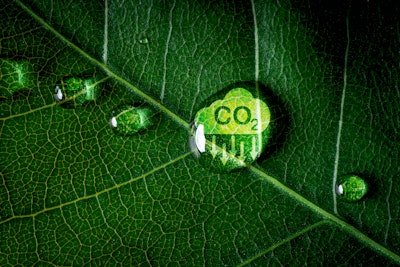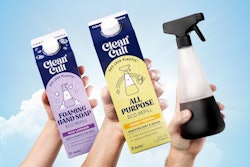Producing new plastic by advanced recycling of post-use plastic, instead of fossil-based production, can reduce greenhouse gas emissions (GHG) and increase the U.S. recycling rate. That’s according to research by the U.S. Department of Energy’s (DOE) Argonne National Laboratory, which published its peer-reviewed Life Cycle Analysis (LCA) study in the November 2023 issue of “Journal of Cleaner Production.”
According to Argonne, this is the first analysis of multiple U.S. facilities taking post-use plastic all the way to new plastics again. Specifically, the plastics studied were low-density and high-density polyethylene, and the recycling process used was pyrolysis, whereby plastics are heated to high temperatures in an oxygen-free environment. The main product is pyrolysis oil, a liquid mix of various compounds that can be an ingredient in new plastic. The oil can replace fossil ingredients like naphtha and gases to manufacture ethylene and propylene. They are two important monomers, or building blocks, for plastic production.
The study collected operating data from 2017 to 2021 from eight companies with varying pyrolysis oil production processes. The analysis shows an 18% to 23% decrease in GHG emissions when making plastic with just 5% pyrolysis oil from post-use plastic compared to crude oil-derived LDPE and HDPE, respectively.
When factoring in current end-of-life practices for many plastics in the U.S., such as incineration, there is a further 40% to 50% reduction in GHG emissions when manufacturing pyrolysis-based LDPE and HDPE, respectively, according to the analysis. Reductions are much higher (up to 131%) in the European Union, as more post-use plastic is currently incinerated.
“As advanced recycling becomes increasingly efficient, it is poised to play a major role in achieving global sustainability goals by reducing waste and GHG emissions,” says Pahola Thathiana Benavides, Argonne principal energy systems analyst and a study author. “It can transform hard-to-recycle plastics into a multitude of high-value raw materials, reducing the need for fossil resources and potentially minimizing the environmental impact of waste management.”
Notes Argonne, advanced recycling enables reliance on post-use plastic to produce valuable industrial chemicals and develop markets for recycled plastic materials. Pyrolysis is one of the most common advanced technologies being implemented at industrial scale to convert post-use plastic that cannot typically be turned into new products using other means.
Environmental outcomes
While the Argonne researchers analyzed several different scenarios for pyrolysis oil used as a raw material for new plastic products (HDPE and LDPE), the most-likely scenario of 5% recycled materials shows these reductions when compared to virgin production:
- GHG emissions: 18% to 23%
- Fossil energy use: 65% to 70%
- Water use: 48% to 55%
- Solid waste: 116% to 118%
The study utilized Argonne’s Greenhouse Gasses Regulated Emissions and Energy use in Technologies (GREET) model, which has more than 55,000 users worldwide. GREET is widely used by the DOE as well as multiple agencies including U.S. Environmental Protection Agency. The study was supported by the American Chemistry Council. PW



























